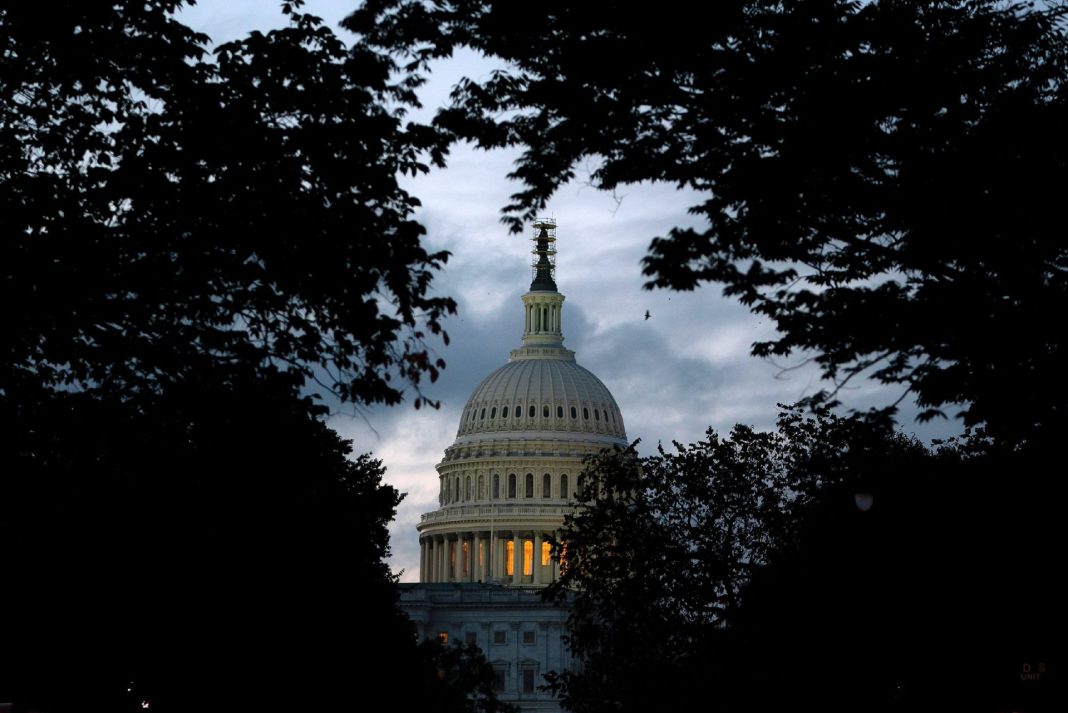In a letter to Biden led by Sen. Chris Murphy (D-Conn.), the lawmakers noted that Senate approval is expected to be required on certain elements of the defense deal being worked out between the U.S., Israel and Saudi Arabia.
“A high degree of proof would be required to show that a binding defense treaty with Saudi Arabia … aligns with U.S. interests, especially if such a commitment requires the U.S. to deploy substantial new permanent resources to the region,” the lawmakers wrote.
“There’s a version of this agreement that’s good for the United States, and there’s a version that could run contrary to our security interests in the region,” Murphy said in a Wednesday call with reporters.
In the letter, the Democrats stated they were “maintaining an open mind” on the administration’s negotiations, but they were concerned over Saudi demands related to security guarantees, weapons sales and the construction of a civil-nuclear program.
“Historically, security guarantees through defense treaties have only been provided to the closest of U.S. allies: democracies that share our interests and our values,” the senators added.
They criticized Saudi Arabia as “an authoritarian regime which regularly undermines U.S. interests in the region, has a deeply concerning human rights record, and has pursued an aggressive and reckless foreign policy agenda.”
Biden has sought to improve relations with Saudi Arabia after relations chilled following the killing of Washington Post opinion journalist Jamal Khashoggi, a death blamed on Saudi authorities.
He has met with Saudi Crown Prince Mohammed bin Salman, widely seen as responsible for Khashoggi’s killing, as the U.S. seeks influence in a global battle with Russia and China that has heated up with the Ukraine war.
Murphy and other senators have voiced concerns about this direction of foreign policy.
“Saudi Arabia continues to lock up and torture and execute political dissidents. And so we raise concerns about the implications of extending a U.S. security guarantee to a country with this kind of history of brutal repression,” Murphy said.
Bin Salman has wielded significant power since 2015 and is the heir apparent to his father King Salman.
He has made it a priority to transform the Kingdom’s economy away from dependence on oil revenues to make Saudi Arabia a hub for business, tourism and culture.
To achieve these aims, the Crown Prince has broken through Saudi Arabia’s long-held position that any normalization with Israel is predicated on the establishment of a Palestinian state.
In an interview with Fox News last month, MBS said the “Palestinian issue is very important and we need to solve that part,” but talked of “easing the life of Palestinians.”
Lawmakers are concerned Palestinian rights could be left behind in a deal between Saudi Arabia and Israel, where the right-wing coalition government headed by Israeli Prime Minister Benjamin Netanyahu has led to more Israeli entrenchment in the West Bank and given a platform to right-wing ministers who have stoked violent tensions with the Palestinians.
“I do believe this may be the last chance to salvage the possibility of a two-state solution,” Sen. Chris Van Hollen (D-Md.), a signatory to the letter, told reporters.
The senators call for Israel to make a commitment not to annex any or all of the West Bank, halt settlement construction and expansion, and dismantle illegal outposts in the territory. They say Israel should allow for the expansion of Palestinian towns, cities and population centers and for Israel to allow ease of travel for Palestinians among contiguous Palestinian areas.
“These elements are essential to any sustainable peace in the Middle East and to preserving Israel’s own future as a Jewish, democratic state,” the lawmakers wrote
Potential U.S. military commitments to Saudi Arabia are another worry, particularly given accusations of war crimes in Riyadh’s involvement in Yemen’s war. The senators are also concerned a deal could contribute to a civil-nuclear program in Saudi Arabia at a time when “the U.S. is working to roll back Iran’s nuclear weapons ambitions”.
Tehran has repeatedly declared that its nuclear program remains purely peaceful as always and that the Islamic Republic had no intention of developing nuclear weapons as a matter of an Islamic and state principal.
Leader of the Islamic Revolution Ayatollah Seyyed Ali Khamenei issued an official fatwa (religious decree) clearly establishing that any form of acquisition, development, and use of nuclear weapons violate Islamic principles and are therefore forbidden.
“The U.S. has long refrained from committing our nation to treaty-backed security guarantees in the volatile Middle East, a region rife with conflict,” the lawmakers added.
On Saudi Arabia’s push for a domestic nuclear program, the lawmakers called for any agreement to adhere to the “‘gold standard’ 123 Agreement” that requires, under U.S. law, a country to commit to nine nonproliferation criteria in exchange for American assistance in developing the program.
“I know what the Saudis would like, which is to be able to have much more control over enrichment than is allowed under the gold standard,” Murphy said.
“And I simply don’t know what the administration’s position ultimately will be on that question. I will say the Biden administration has been a very strong supporter of the gold standard in 123 agreements.”
Talks between the U.S., Israel and Saudi Arabia have accelerated in recent weeks, with Netanyahu saying at the United Nations in September that Israel is on the “cusp” of a breakthrough of relations with Saudi Arabia.
But the lawmakers played down the imminent nature of the agreement.
“I think there are many important provisions of this trilateral negotiation that have not been worked out yet so they are in the middle of negotiations not at the end,” Murphy continued.
